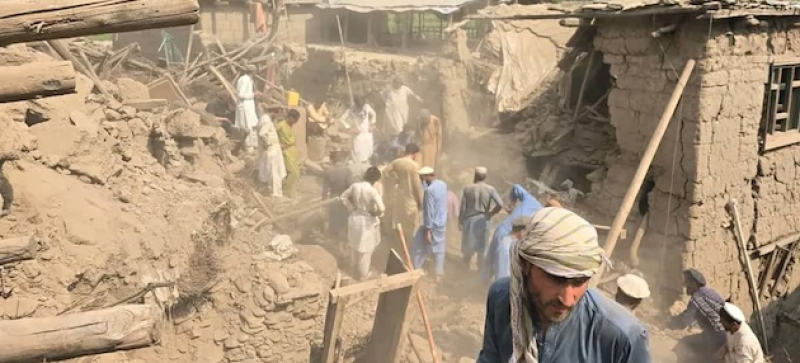- CA Yunus pays homage to Liberation War martyrs on Victory Day |
- Bangladesh capital market extends losing streak for second day |
- Bangladesh celebrates Victory Day Tuesday |
- 'Different govts presented history based on their own ideologies': JU VC |
UN Rallies After Deadly Afghan Quakes, Urges Global Aid

IOM teams are assessing damage and delivering life-saving support to those in urgent need after a devastating earthquake in Afghanistan.
United Nations aid agencies are mobilizing after a series of earthquakes and powerful aftershocks wreaked unprecedented havoc across eastern Afghanistan—particularly in the mountainous provinces of Kunar and Nangarhar.
Preliminary reports indicate that at least 1,400 people have been killed and more than 3,100 injured. Thousands have been displaced by the widespread destruction of homes and vital infrastructure, while rockfalls and landslides have hampered rescue teams’ access to remote areas.
In response, the UN Office for the Coordination of Humanitarian Affairs (OCHA) released $10 million within hours to provide shelter, food, water, child protection, and healthcare. Countries including the United Kingdom and South Korea have pledged support through the UN, though the UK does not recognise the Taliban government. The UN Development Programme (UNDP) is working with local partners to link immediate relief with long-term recovery and resilience-building. An emergency appeal is also being prepared, with an initial $5 million already released from the UN Central Emergency Response Fund (CERF).
Despite swift action, concerns remain about sustaining aid. Tom Fletcher, Under-Secretary-General for Humanitarian Affairs and Emergency Relief Coordinator, warned:
“This crisis again exposes the impact of shrinking resources on humanitarian work. Massive funding cuts have already halted essential health and nutrition services, grounded aircraft—often the only lifeline to remote communities—and forced agencies to scale back operations.”
He urged donors to step up “once again” for the people of Afghanistan.
UNDP Resident Representative Stephen Rodriguez described the situation as a “perfect economic storm.” He reported that UN assessment teams found 84,000 people affected so far. Highlighting “community-driven recovery” efforts, he pointed to cash support for families clearing rubble and rebuilding homes, citing success with similar initiatives after the 2023 Herat earthquake.
Restrictions on women and girls continue to complicate aid delivery. Susan Ferguson, UN Women’s Afghanistan Special Representative, warned that “women and girls could miss out on lifesaving assistance or information in the days ahead.” However, Rodriguez rejected claims of systemic barriers to medical care, describing such reports as “isolated incidents.”
Despite donor reluctance to fund through Taliban authorities, UN officials reaffirmed their commitment to humanity, impartiality, and independence. Rodriguez noted that improved coordination—even involving Taliban helicopters—has helped aid reach remote areas.
For now, the priority remains immediate survival: rescuing those trapped, delivering food and clean water, and preventing disease outbreaks. But officials stressed that rebuilding shattered homes and livelihoods will demand far more than emergency aid—it requires sustained support and long-term commitment.

